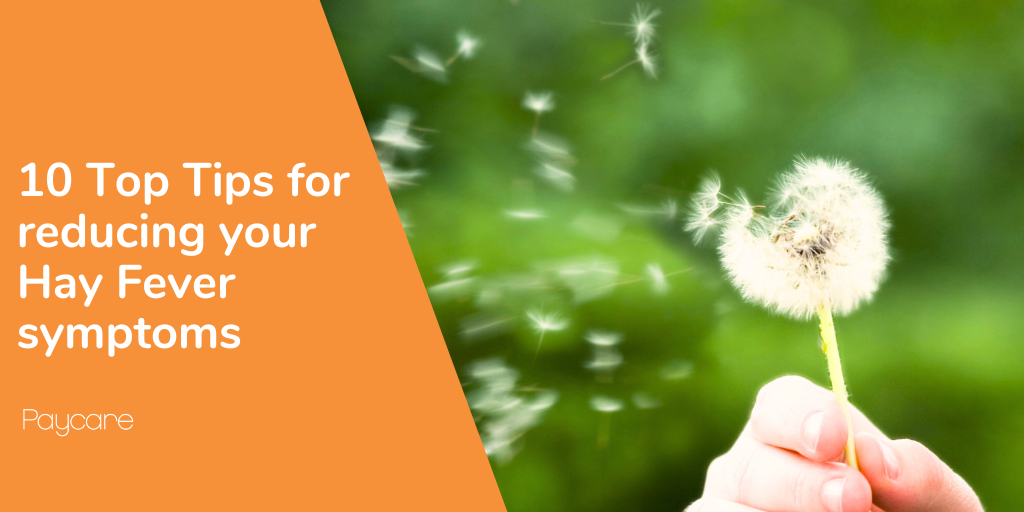Watery eyes, itchy nose, and constant sneezing – sound familiar?
Then you might be one of the estimated 10 million people in the UK who suffer with hay fever throughout the warmer months.
While thankfully the condition doesn’t normally cause any life-threatening side effects, it can cause havoc if you’re making outdoor plans during the summer – and there’s not yet a cure for hay fever.
However, there are many suggestions out there which could make the symptoms a little more bearable. We’ve put together 10 top tips below, but if you’ve got a tried and tested remedy to alleviate the seasonal blight of hay fever then do get in touch and let us know so we can add it to the list!
1. Schedule outdoor time wisely: staying indoors isn’t ideal, especially during hot weather. But by planning in advance and avoiding unnecessary outdoor time when the pollen count is the highest you can hopefully avoid the worst of your symptoms.
2. Speak to a pharmacist: hay fever remedies such as anti-histamines are something your local pharmacy should be able to advise you about if needed.
3. Have a shower and change: get into the habit of showering and changing your clothes as soon as you come indoors to get rid of any pesky pollen lingering on your skin or outfit.
4. Ensure you’re hydrated: becoming dehydrated can alleviate the histamine levels in your body which will worsen your hay fever symptoms, so get sipping on plenty of water to keep them at bay.
5. Avoid drinking too much alcohol: drinking can suppress your immune system so it’s not ideal if you’re hoping to combat your symptoms – especially in the evening.
6. Aim for more sleep: Another reason to avoid alcohol at night is it can stop you getting a good night’s sleep, something which is vital to help reduce your hay fever side effects.
7. Keep it clean: a regular vacuum, dust and bed linen change can help reduce the amount of pollen lingering in your home.
8. Pets carry pollen too: don’t forget your cat or dog may be bringing in pollen from outside – so regular grooming is a must.
9. Try histamine-reducing foods: nettle or chamomile teas, green veg, berries, beans and apples all contain ingredients known to suppress histamine production.
10. Write it down: keeping a diary of when your symptoms are at their peak can help you plan ahead, and feel more prepared next hay fever season.
And just a reminder that you should always seek appropriate medical advice – especially if your symptoms worsen or are having a significant impact on your life.
For now, we’re wishing you a safe and sneeze-free summer! 💛
For more handy health tips – head to our blog 😊

